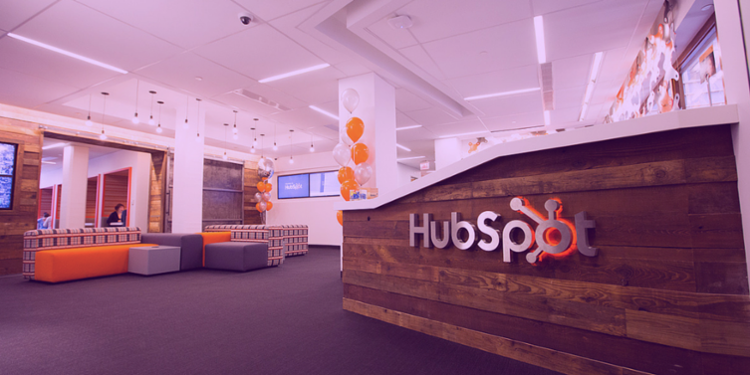Today’s consumers are spoilt for choice when it comes to solutions to soothe their challenges. In...
The bigger your company grows, the more data and leads you’ll have to manage. This is a huge task and can quickly become a mess if you don’t have the right system to keep it well organised. That’s where Customer Relationship Management (CRM) software comes into play.
A CRM can enable sales and customer relationship strategies, identify leads and customers, and manage customer relationships. But which one is right for your business? This post will compare two of the most popular choices — HubSpot and Salesforce — and help you decide which is best for your business.
Want to hear from someone with both HubSpot and Salesforce experience? Avidly developer Sami Leinonen has worked extensively with both CRMs and shares his views on the main differences between the two platforms here.
How do I choose the right CRM?
It’s important to realise that there’s no “one-size-fits-all” approach. No two businesses are identical, and they’ll have different needs when managing their customer relations.
That’s why you need to select the CRM that’s perfect for your business. Just because it worked for your competitors doesn’t automatically mean your company will take to it like a duck to water.
You have to consider the overall size of your business, its structure and predicted growth, your budget and any other technology you’ll use in conjunction with it. These are vital areas that should shape your decision to choose the right CRM.
Monthly costs
When choosing a CRM platform, many businesses will place a huge priority on the price of the package. While you must stick to your budget, the price shouldn’t carry too much weight when deciding.
After all, just because one platform is more expensive than another doesn’t guarantee better results.
Salesforce
Salesforce calculates the total costs based on two factors:
-
Number of users. Essentially, the more users you need, the more you’ll have to pay for licences
-
User type. Salesforce uses different categories that determine the price of each user: Starter, Professional, Enterprise, Unlimited and Einstein 1 Sales. As you progress up the tiers, the capabilities of what you can do with each package increase
Typically, Salesforce users can expect to pay between £20 - £400 per month. The price will depend on each package's functionality level, and you can mix and match the various levels according to each user's needs.
HubSpot
With HubSpot, you can access their basic CRM package free of charge, with no time limit enforced on this option. Then, as your business grows, you can scale your solution.
HubSpot includes all the features you need at its advertised price with no hidden fees. You’ll only have to pay for additional revenue-generating sales seats. So, if you have team members who only need visibility into business performance, they can benefit from free seats.
There are also additional sales and marketing tools to strengthen your platform. The bonus is that you’ll still get access to the HubSpot platform if you purchase any or all of the hubs (marketing, sales, service and CMS).
Combining the power of these hubs means your business can become more versatile and align your teams — all under one CRM. Plus, built-in tools, reporting and integrations mean you can easily gather insights and connect with customers more quickly.
Hidden costs
When choosing your CRM, you need to look out for hidden costs as well as monthly ones. What may seem like a cheap deal on the surface could turn out to be an expensive investment if you don't realise what you’re getting with your package.
Salesforce
Salesforce costs can rise above basic licensing fees, and depending on your needs, you may need to purchase some added extras. Salesforce excels with its add-ons, apps and additional products, but these may cost your business extra.
You may also require extra support from Salesforce experts when the CRM is initially implemented, which could be billed monthly on top of your current costs.
Salesforce also charges you for every user who requires an account, no matter their involvement in the CRM. For example, if your company's exec wants visibility into the team's performance or to view dashboards, they'd still need a paid account.
HubSpot
With HubSpot, you don't have to worry about hidden costs. However, if your business wants to integrate HubSpot with another software, it may cost you to set this up.
The paid marketing and sales tools will add further expense to your account. Otherwise, you can use HubSpot's CRM as a standalone system without having to pay for other features.
However, you get some fantastic free features such as marketing tools, many apps and more. Unlike Salesforce, where every user needs a paid account, even for basic jobs, you can still be a 'free user' in HubSpot with a paid version.
Here's a handy breakdown of HubSpot and Salesforce's pricing. It explains exactly what you'd need to pay for each platform.
Ease of use
Ease of use is entirely down to the individual using the software. If you’re used to using different platforms and are experienced with computers, it shouldn’t be too much hassle trying to pick up either system. Both are well laid out and are easily navigable with a simplistic design.
It’s hard to definitively answer which one is easier to use as different people excel and stumble in different areas.
However, considering customer reviews, G2 ratings rank 'Ease of Use' as HubSpot's best pro and an 'Ease of Setup' rating of 9/10 is a testament to the software's user-friendly nature.
HubSpot allows you to hit the ground running with minimal setup, so you won't feel an impact on your business.
Salesforce's G2 reviews also show it ranks highest on 'Ease of Use' but has a slightly lower 8/10 'Ease of Setup' score.
So, both CRMs are straightforward to use, as customer reviews have shown. However, HubSpot really thrives during the implementation stage.
HubSpot is built so you can customise it to meet your needs without adding any complexities. It's also crafted in-house, so you can combine powerful features while maintaining the ease of use for your team.
Salesforce implementation can take a while. A more complex platform can slow you down, so keep this in mind when choosing between the two CRMs.
Integrations
Integrations are a great way of tying your business' different applications and records into one place. This gives companies easy access to their data and saves time, as there's no switching between different applications all of the time.
Plus, if your apps are integrated, there shouldn’t be any confusion or double-booking between the two.
Salesforce
Salesforce offers an ecosystem of thousands of integrations. You can integrate with already popular applications and create custom integrations if necessary, which can be incredibly useful if you use less popular applications.
HubSpot
HubSpot continues to evolve and now offers over 1,500 options for integrating the platform with apps and web services. The marketplace has a whole host of integrations, ranging from free to specific team apps.
Support
Whenever new technology is implemented, you need a certain level of support to help you introduce it as smoothly as possible. Luckily, both platforms offer a certain standard of free support.
Salesforce
Salesforce includes the following support features in its basic packages:
-
How-to guides
-
Forums
-
eSchool courses
-
Knowledge basis content
-
Certification tracks
- Blogs
HubSpot
HubSpot offers many different forms of support for its users. These sources include:
-
Training courses
-
Certification tracks
-
Blogs
-
eBooks and other downloadable content
-
24/7 live customer support
-
Community forums
-
HubSpot Academy
Our verdict
Having weighed up both sides, we feel that there's only one winner: HubSpot. There are many reasons why it's our winner, but it's mainly because the HubSpot CRM is a comprehensive platform that offers everything you need with marketing, sales, customer service and content management tools. It has everything you need to plan and deliver effective marketing campaigns, manage your sales pipelines and build your brand.
From monitoring the entire buyer's journey and helping you to better identify prospects to including marketing automation options and more, HubSpot has plenty to offer.
It's all about growth. Every business wants growth, and HubSpot realises that. That's the biggest benefit of the HubSpot CRM platform — it allows you to grow more easily compared to other options, as you can align your success with your customers.
It's flexible, cohesive, empowering and a source of truth from which your business will benefit. The right CRM platform can assist your business’ growth in many ways. But it isn’t the only thing you need for your enterprise business to grow effectively.
Discover how the right CRM can make your sales process more efficient
Choosing the right CRM can completely transform how your business views and handles its sales process.
Our page walks you through the benefits of a CRM system, how your business can use one to improve sales efficiency, how to create a successful CRM strategy and nine steps for choosing the right CRM system.
Continue your research and ensure you choose the right solution by clicking below.



